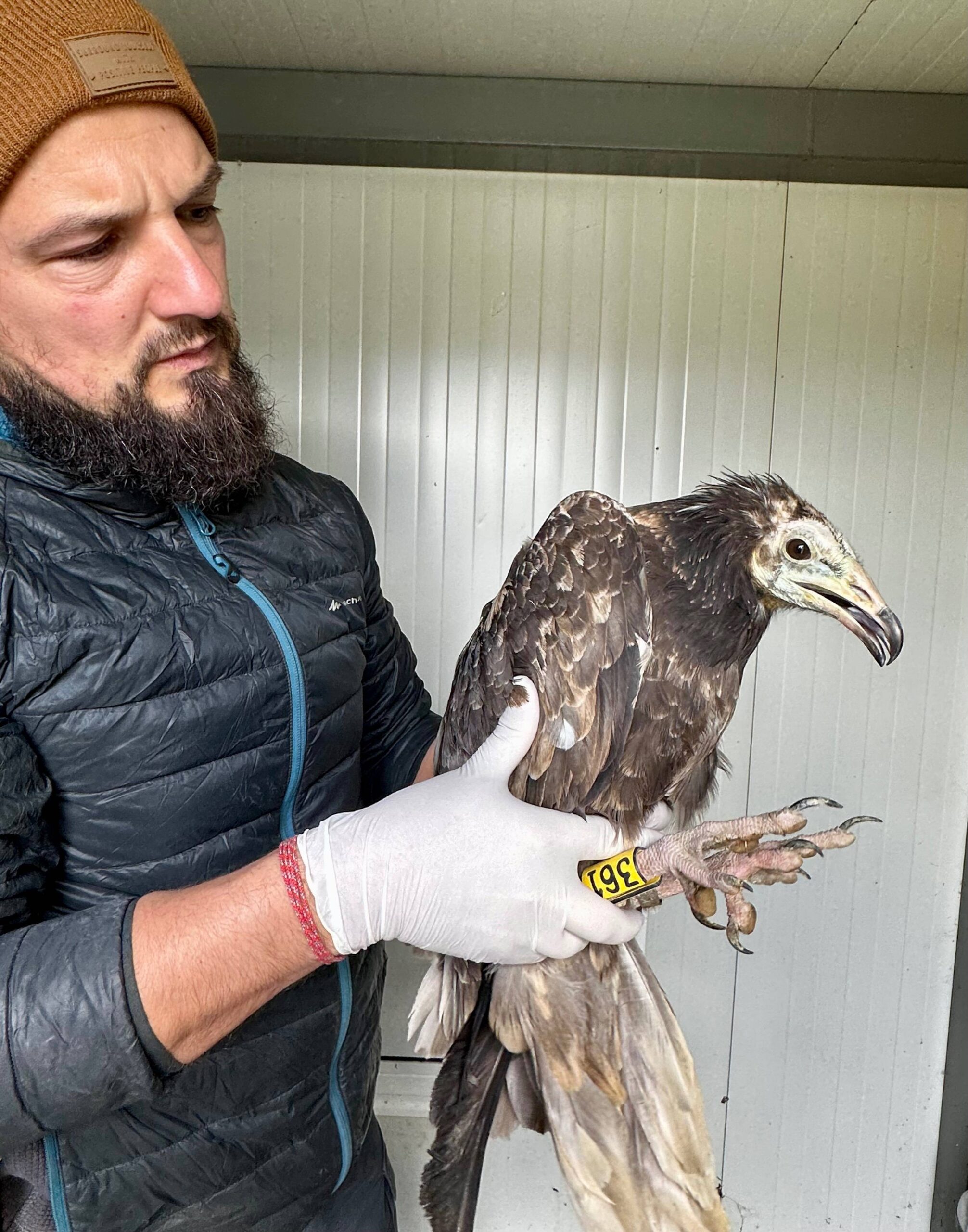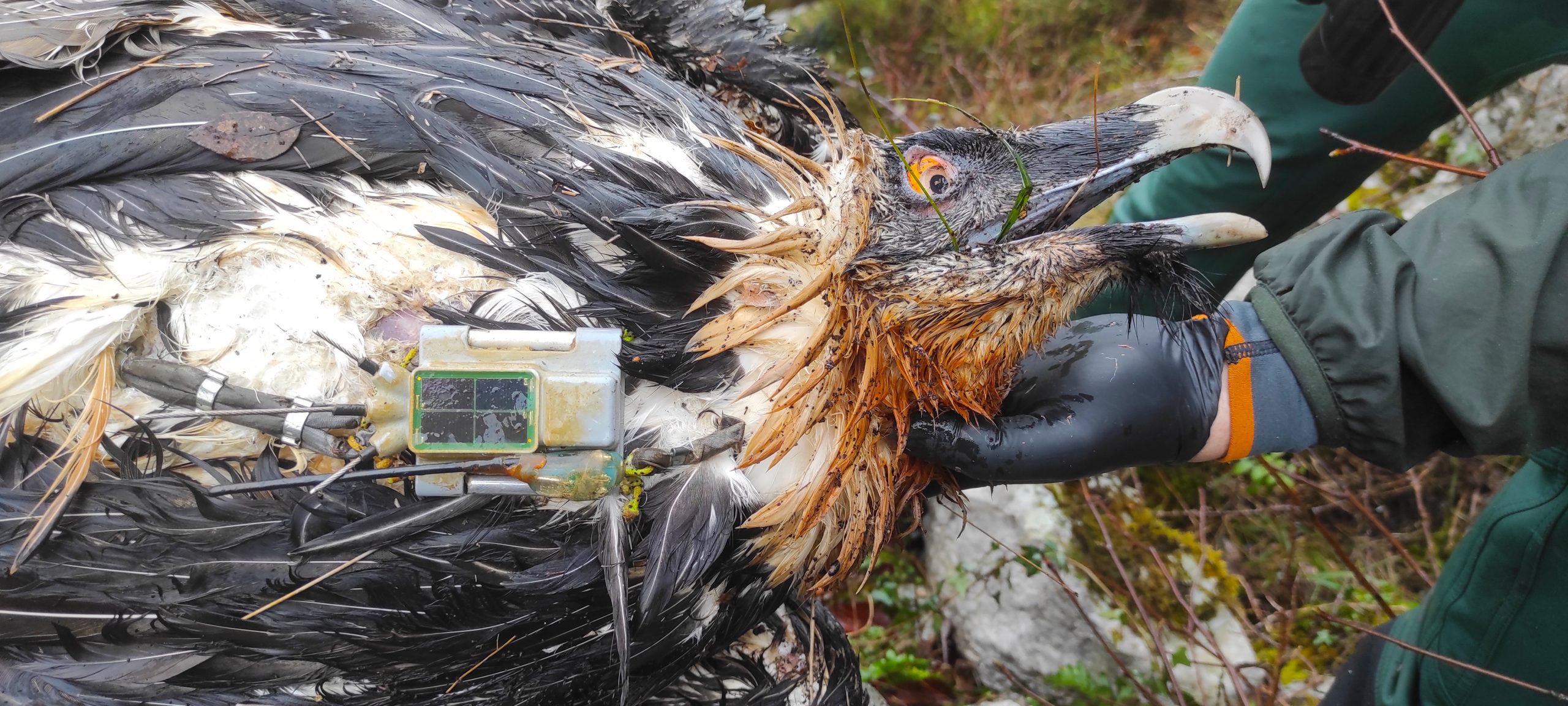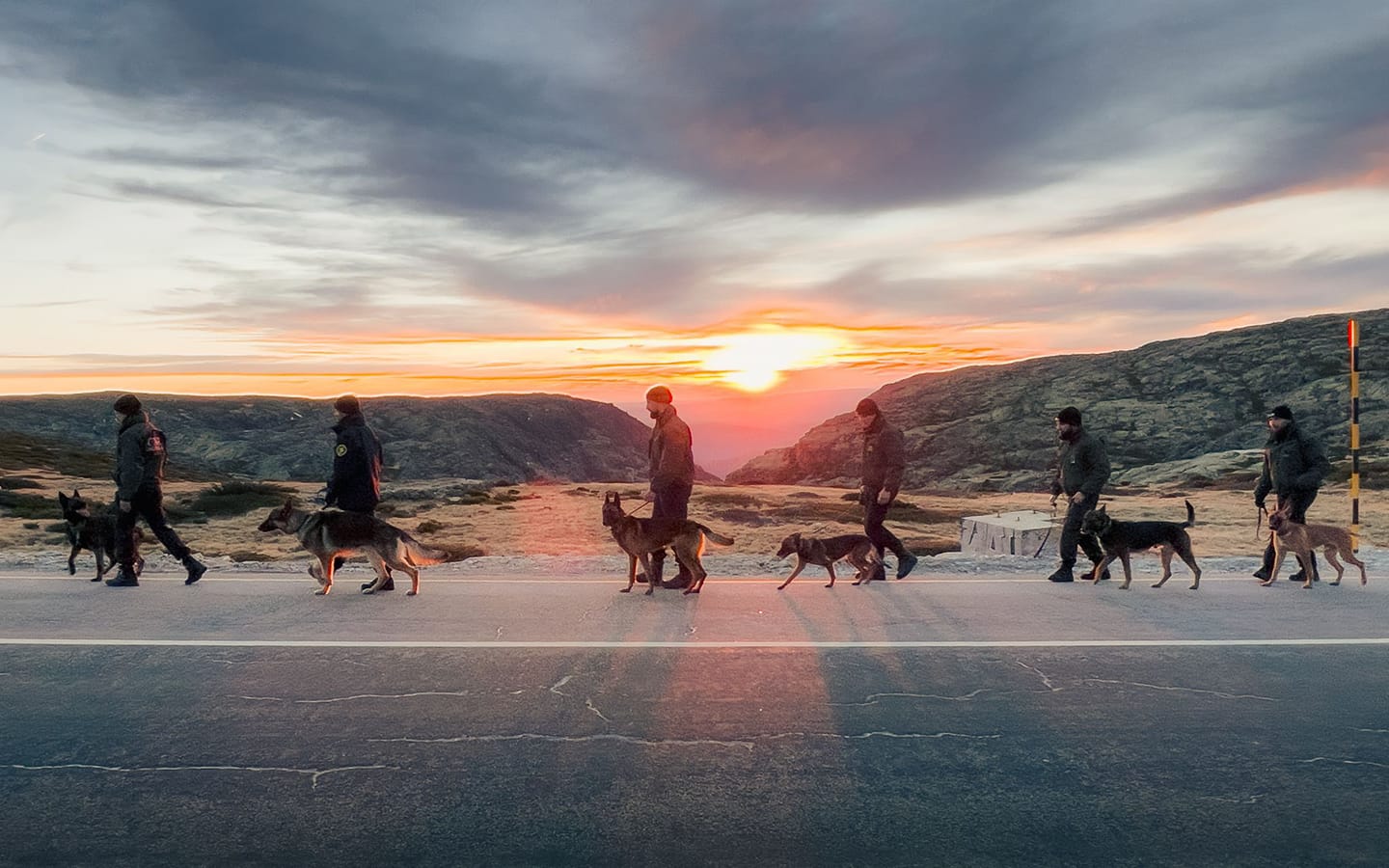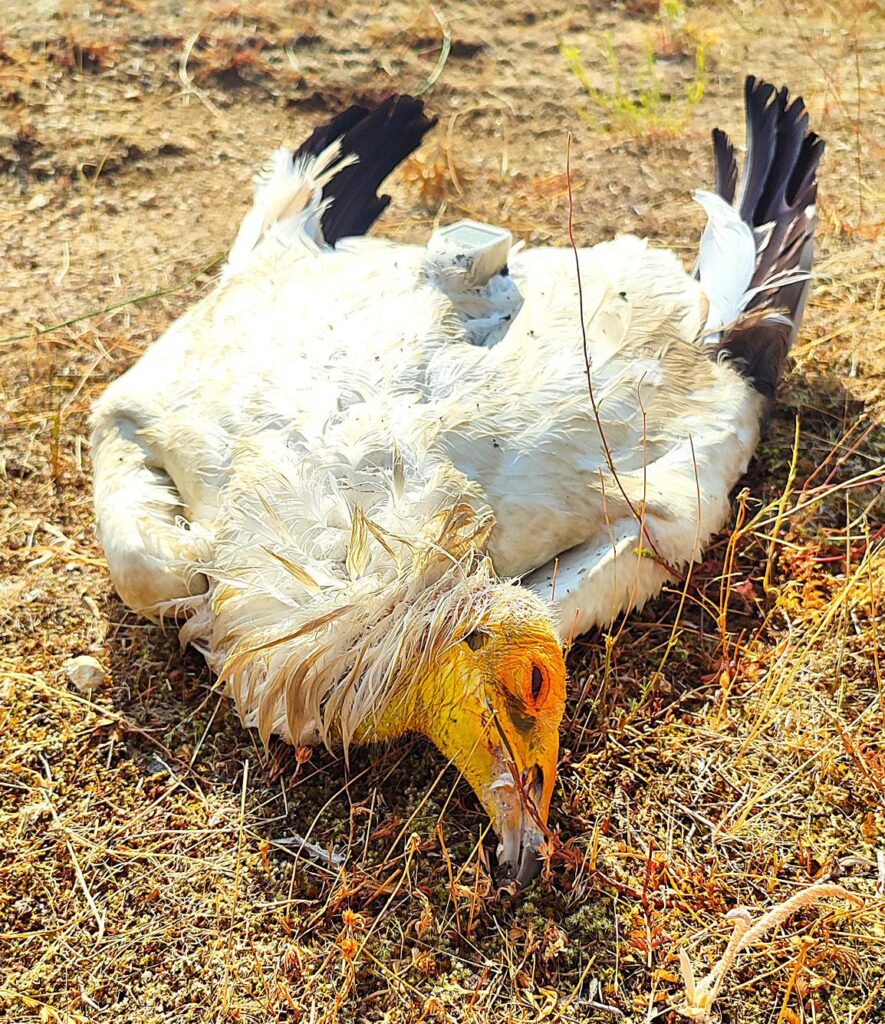
Bulgaria’s endangered Egyptian Vultures have faced another tragedy this year — the second poisoning incident of 2025 has claimed the life of a breeding female and set off a race to save her only chick.
Another Egyptian Vulture suspected to be poisoned.
In recent days, the Bulgarian Society for the Protection of Birds (BSPB) noticed unusual GPS data from a tagged female named Deni in the village of Hrastovo, Krumovgrad Municipality.
BSPB’s anti-poison team, accompanied by their trained dogs Bars and Buda, rushed to the site. They found Deni dead. Field evidence suggested that an illegally placed poison bait had killed her.
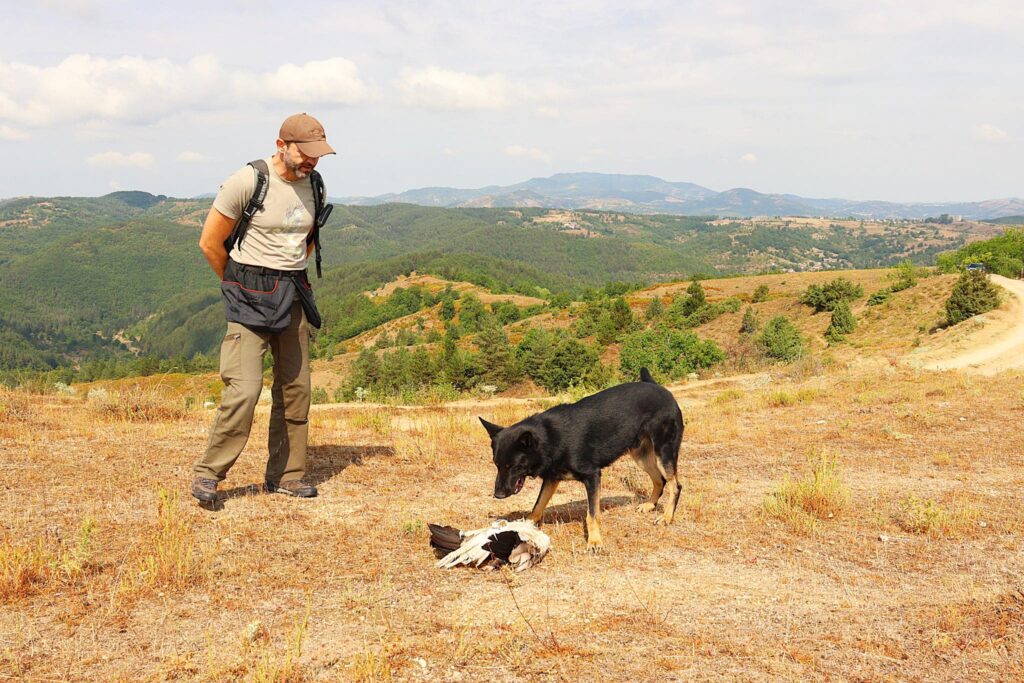
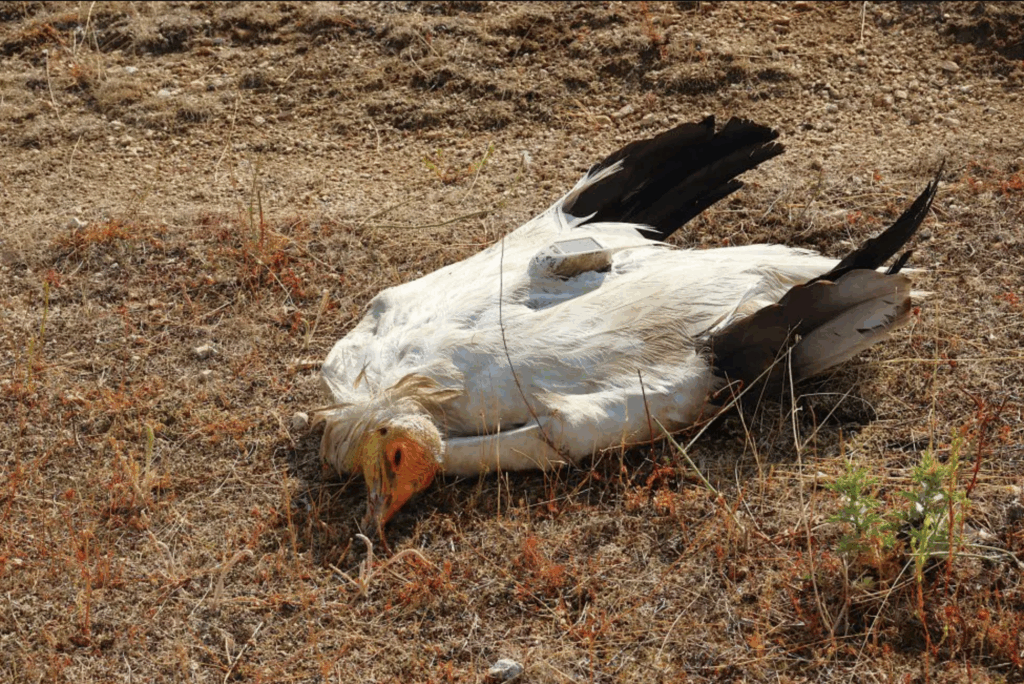
Immediate response and investigation
The BSPB activated emergency procedures under Bulgaria’s National Action Plan to Combat the Illegal Use of Poisons in the Wild (2021–2030). Authorities were notified both via the 112 emergency line and through the police’s environmental crime unit.
The suspected bait was found and neutralised quickly, preventing more deaths among wildlife or domestic animals. An official investigation has been launched, with toxicology tests now underway.
A race to save the chick
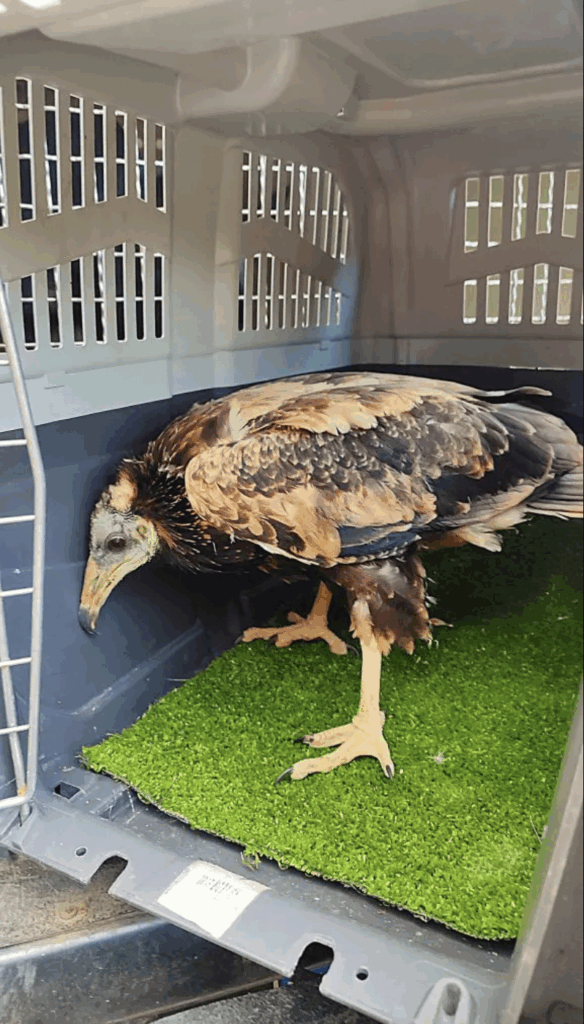
Deni’s death left her mate alone to raise their first chick — something male vultures can’t manage alone while also foraging. Without help, the chick would have died.
A rescue team reached the nest and safely retrieved the young bird, now in care at the Green Balkans Wildlife Rescue Centre in Stara Zagora. If it grows successfully, it will be released back into the Eastern Rhodopes in 2026, contributing to the species’ recovery.
Deni’s Story
Deni’s life was closely tied to Bulgaria’s vulture recovery efforts. She hatched in 2020 at the Green Balkans rescue centre and was released into the wild the same year under BSPB’s reinforcement programme.
Nicknamed part of the “Class of 2020” at the Vulture School, she formed a pair with a wild male in spring 2024 and claimed territory near Krumovgrad. This summer’s chick was her first.
Echoes of April’s poisoning
This is the second Egyptian Vulture poisoning incident in the Eastern Rhodopes this year.
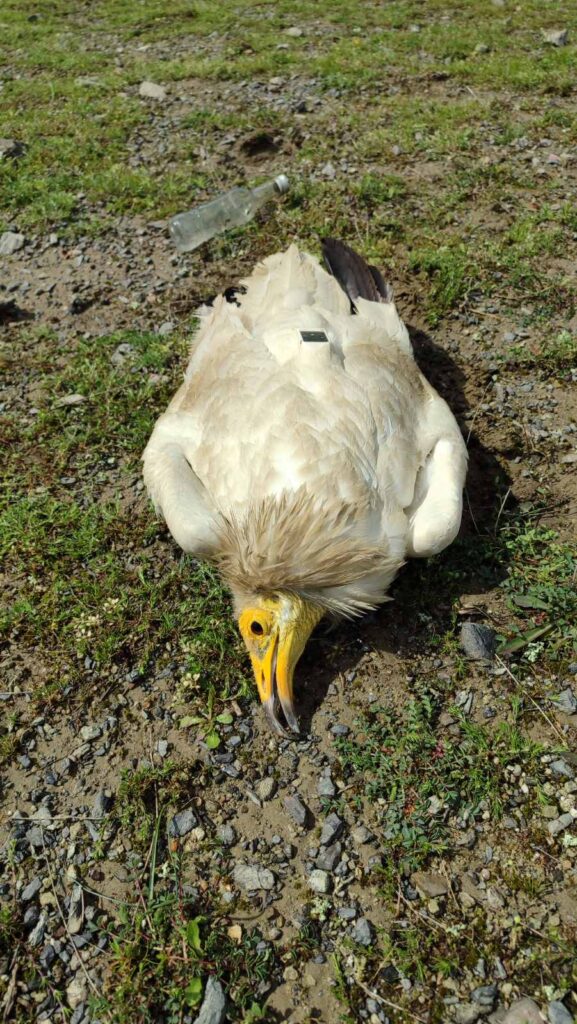
On 8 April, BSPB expert Dr. Volen Arkumarev saw another breeding female, Sky, feeding on meat during routine monitoring near Momchilgrad. Within minutes, she showed clear signs of poisoning: extending her neck, losing her balance and creating foam out of the beak. Despite first aid efforts to save the bird, Sky died in his arms.
Her partner’s fate was unknown until BSPB’s dog unit found the vulture named Chance collapsed nearby. He was barely alive. Veterinarians treated him immediately with atropine, washed his goiter and successfully removed the bait. After weeks of intensive care recovery at Green Balkans, Chance was nursed back to health and released back to the wild on 14 May.
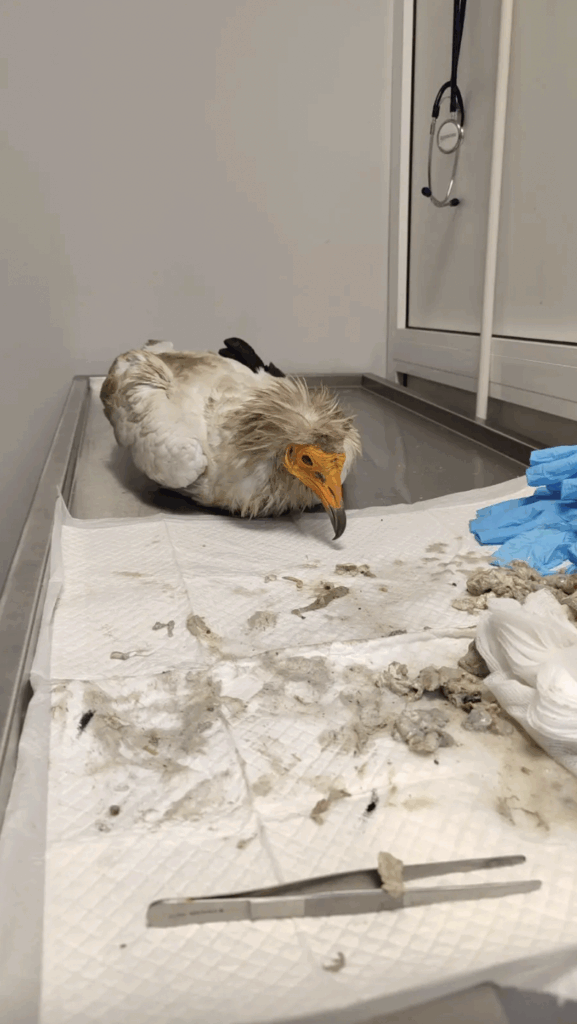
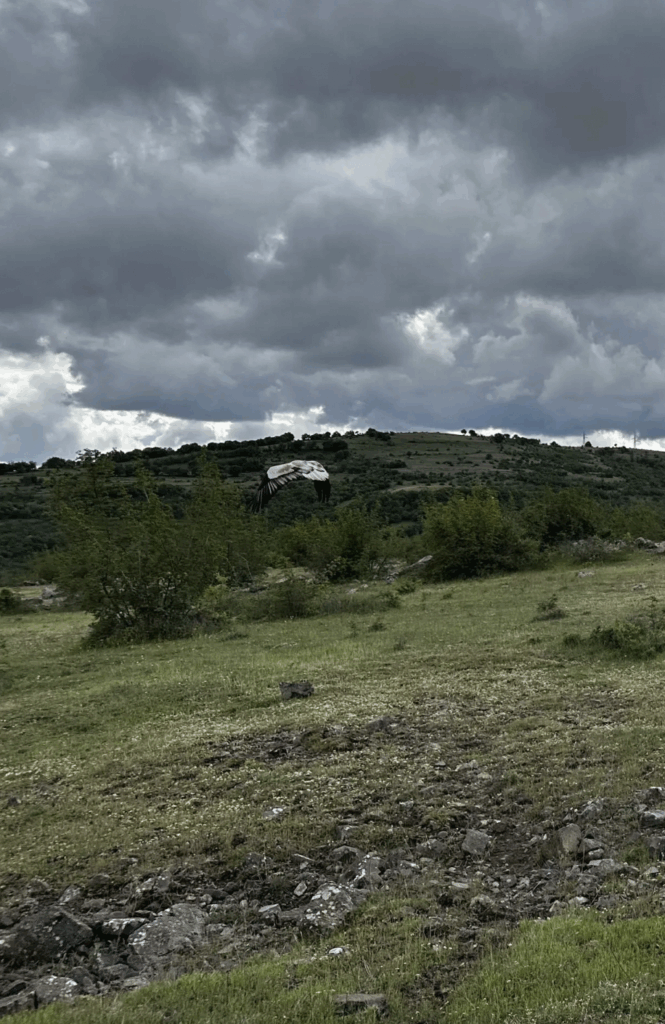
In both incidents, BSPB teams activated the necessary investigation and protocol procedures and removed all poisoned baits found in the area to prevent further animal deaths.
A persistent and illegal threat
Poison baits have been banned in most Balkan countries since the late 1980s and early 1990s, yet the practice continues, usually aimed at killing predators that threaten livestock or game. Scavengers like vultures are often unintended victims.
In the past 20 years, around 2,300 vultures have died from poisoning in the Balkans. The danger isn’t limited to wildlife; toxins can contaminate soil and water, endangering livestock and even people.
Bulgaria’s Egyptian Vulture population is down to just 35 breeding pairs, with 29 in the Eastern Rhodopes. The loss of even one adult is a serious setback.
Regional efforts and a call for action
Projects like BalkanDetox LIFE bring together nine organisations across seven Balkan countries. They strengthen national capacities to fight wildlife poisoning and raise awareness about the problem across seven Balkan countries. Through the Wildlife Crime Academy – launched through this project, which has since expanded into its own initiative – they have trained enforcement, toxicology, and forensic science professionals to properly investigate and prosecute poisoning and other wildlife crimes.
However, enforcement remains weak. However, enforcement remains weak. Faster investigations and prosecutions, stronger application of existing laws, and public vigilance in the immediate reporting of suspected baits are crucial to combat this illegal practice.
Every poisoned vulture is not just an individual lost. It’s a step backwards in decades of conservation work. The survival of the Egyptian Vulture in Bulgaria depends on fighting this illegal and deadly practice.

